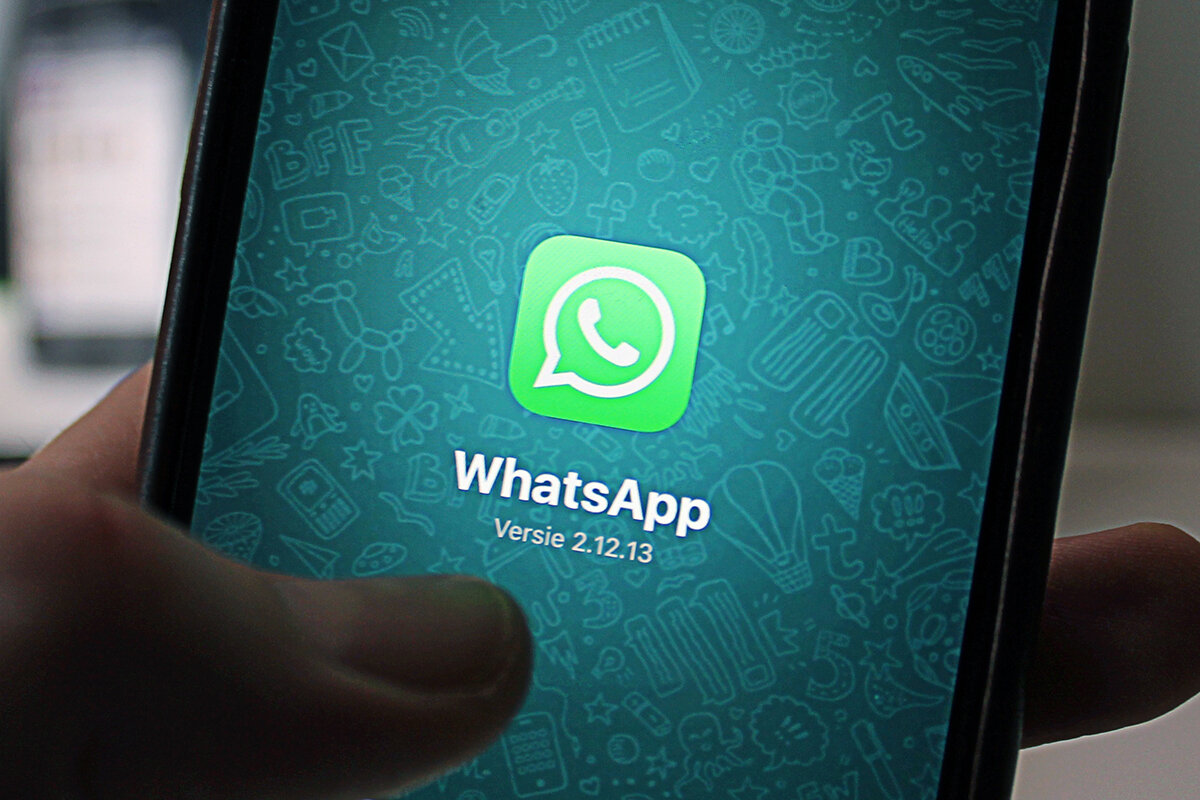WhatsApp is an excellent messenger, but these five great alternatives are too.
Today’s Best Tech Deals
Picked by PCWorld’s Editors
Top Deals On Great Products
Picked by Techconnect’s Editors
More than a billion people around the globe use WhatsApp to stay in touch, and while people have been looking for alternatives in the wake of some recent controversies, it can be difficult to quit if your friends circle is already entrenched.
Like most messaging apps of this type, you can only communicate with others who are also using WhatsApp—messaging apps aren’t universal like text messages are. There’s no way to text someone from WhatsApp and have them receive it on Facebook Messenger, for example, or vice-versa. That’s what makes it so hard to leave services like WhatsApp. They only work if you take your friends with you.
Nevertheless, you may want to leave WhatsApp because you’d rather avoid a service owned by Facebook. Or maybe the recent terms of service changes still bother you. Or perhaps you just want to try something new, as each chat service offers distinct selling points. Here are five messaging alternatives for you and your friends.
Signal
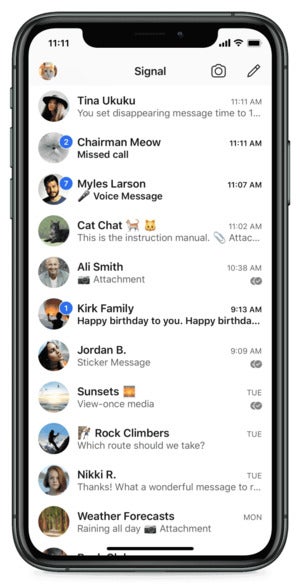 Signal
SignalSignal for iOS.
The easiest transition coming from WhatsApp would be Signal. WhatsApp’s encryption scheme is based on Signal’s work, and many of the same features you’re looking for can be found here. Signal offers end-to-end encryption and you can carry out group chats, video chats, and voice calls. You can also share photos and videos, GIFs, emojis, and more. Signal prides itself on its powerful privacy promise, but it still functions as a modern, full-featured messaging app.
One thing Signal does lack is an equivalent to WhatsApp Web for viewing your chats in a web browser on any device. That said, the service offers a desktop app that achieves similar functionality. Unlike WhatsApp, however, Signal’s desktop app only shows new messages from the point you started using it (thanks to the strict way it handles encryption and privacy). You cannot see older messages as you can with WhatsApp.
Signal also supports disappearing messages if you use that feature on WhatsApp. Unlike WhatsApp, however, you can customize the amount of time before messages start disappearing.
If you want to get started with Signal we’ve got an article explaining everything you need to know.
Wire
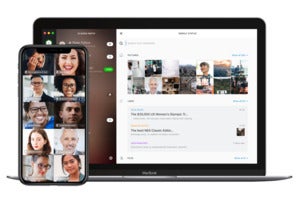 Wire Swiss
Wire SwissWire is a premium end-to-end encrypted messenger (like Signal) that’s brought to you by some of the same people who developed Skype. Similar to Signal and WhatsApp, you can use your phone number to sign-up. Alternatively, you can sign-up with email. Once that’s done Wire assigns you a username prepended with an “@” similar to Twitter.
Wire is a little odd to use, but it gets the job done with video calls, voice calls, one-to-one and group chats. Wire’s end-to-end encryption also uses a ratchet system like Signal and others.
Similar to WhatsApp, Wire has a web app that you can use. You need to set an email and password to use it, however, and it does not show chat history prior to enabling the web app.
Telegram
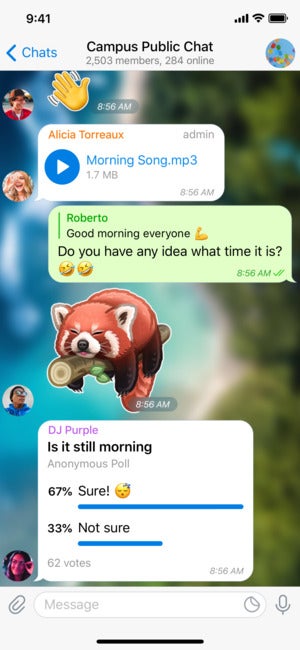 Telegram
TelegramTelegram is another incredibly popular messaging app. It also supports end-to-end encryption, but as an optional feature dubbed Secret Chats that must be enabled on a per-conversation basis. Telegram’s encryption scheme is also proprietary in contrast to the open source approach that Signal and others take. That means that we can’t know how good (or bad) Telegram’s approach to privacy is, since outside experts cannot examine the encryption on their own terms.
Telegram offers all the basic features you need, including one-to-one messaging, group chats, video calls, and voice calls. A feature called the Self-Destruct Timer enables disappearing messages, but you can only use it when Secret Chats is enabled. Telegram also has a desktop app.
Just like WhatsAp,p you sign-up with a phone number, and any of your contacts that are already on Telegram get populated onto a list, with a one-click option to invite those who aren’t.
Telegram started life based in Russia but is now based in Dubai.
Viber
 Viber Media
Viber MediaThe last WhatsApp alternative that use your phone number at sign-up, Viber has been around for close to 10 years. It supports video and voice calls, one-to-one text messages, and group messages. Additionally, there’s a feature called Communities that basically offers group chats with few member limits and greater control for administrators.
Viber also has a note-to-self feature, which is a nice touch. You can get the same functionality in WhatsApp by starting a message with yourself.
Viber’s end-to-end encryption, like Telegram, is proprietary; however, the company says it does use the same basic idea of a ratchet system like Signal.
As with some other WhatsApp alternatives, Viber offers a desktop app in addition to mobile.
Keybase
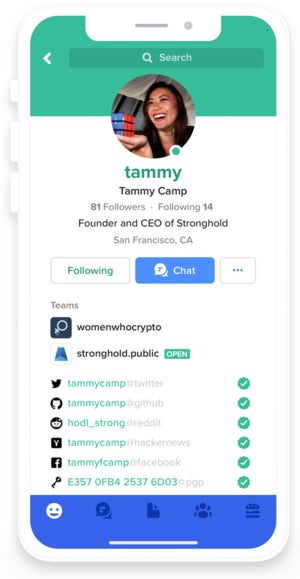 Keybase
KeybaseFinally, if you’d like something a little on the geeky side and can get your friends to go along with it, then we’d suggest Keybase as an interesting choice. Keybase started primarily as a method to prove your identity online. Now, however, Keybase has a multitude of functions such as messaging, the ability to encrypt and sync documents between devices, and share documents and folders with other users.
When it first came out Keybase was decidedly for power users. You needed to have a GPG key to use it and almost everything was activated on the command line. Now, however, Keybase makes it much easier to get started. After you’ve signed up, Keybase does still ask you to prove your identity by connecting to another of your online accounts, such as Facebook, Twitter, GitHub, or your own website. Nevertheless, that’s much easier than it used to be.
Keybase’s messaging is more limited than Signal or Telegram. It doesn’t support video or voice calls, and whether or not it gets those features may depend on Keybase’s new parent company, Zoom. Keybase does offer disappearing messages and group chats (called Teams) that Keybase positions as a Slack alternative, however.
Keybase is available for Android and iOS, and there are also desktop apps for Windows, Mac, and Linux. We should also note that in Keybase’s announcement of the Zoom acquisition it did not guarantee that the Keybase apps would be sticking around.
And there you have it! Five good—great, even—alternatives to WhatsApp. Each messaging app comes with its own unique character, and with five options there are enough choices here to suit nearly everyone’s needs.
Note: When you purchase something after clicking links in our articles, we may earn a small commission. Read our affiliate link policy for more details.
Ian is an independent writer based in Israel who has never met a tech subject he didn’t like. He primarily covers Windows, PC and gaming hardware, video and music streaming services, social networks, and browsers. When he’s not covering the news he’s working on how-to tips for PC users, or tuning his eGPU setup.

